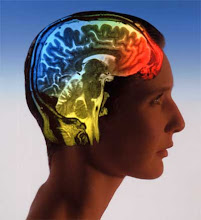Introduction
One of the main theories in the area of stress, the 'General Adaptation Syndrome' or 'GAS' is based on the work of Hans Selye and colleagues. It presents the idea that a person proceeds through a series of stages as they fight stress.
Key Ideas
The GAS suggests that all animals including humans react to all stressors in a similar way. The response to stressors is presented as a 'syndrome', a medical term for a group of symptoms that appear together.
The details
The reaction to stress is presented as adaptation or resistance, for Selye believed that this is an important part of how the body fights stressors, including illness. Not all stressors will cause the full range of stages to be experienced, but if they are, then the person progresses throught three main stages:
- Alarm: the body's reactions and heightened and a 'fight or flight' reaction is experienced. The body releases adrenalin and glucose enters the bloodstream. Symptoms include sweating, a raised heart rate. Internally, the adrenal glands enlarge, and stomach ulcers may be present. The immune system is damaged, with a shrinking of the lymph (white blood cell) system.
- Resistance: if the stressor persists, the body adapts to find some way of coping. Stress hormones such as cortisol are released, and the body obtains energy by burning fats. Even though the stressor is still present, symptoms from the alarm stage disappear.
- Exhaustion: if the stress is prolonged for weeks without being overcome, the body may become
exhausted. Symptoms from the first stage reappear. Ultimately this results in 'diseases of adaptation' such as heart disease, and psychological problems such as depression are also likely.
Evaluation
The GAS is a thorough biological theory of stress, based on a large body of experimental evidence. However, a lot of the research has been done on animals (especially rats and birds), making it harder to apply to humans. The theory is based on sound knowledge of biological systems. However, it does not always take account of psychological factors. The idea that all organisms react to all stressors in the same way is certainly an oversimplification.
Monday, 27 April 2009
Subscribe to:
Post Comments (Atom)

No comments:
Post a Comment